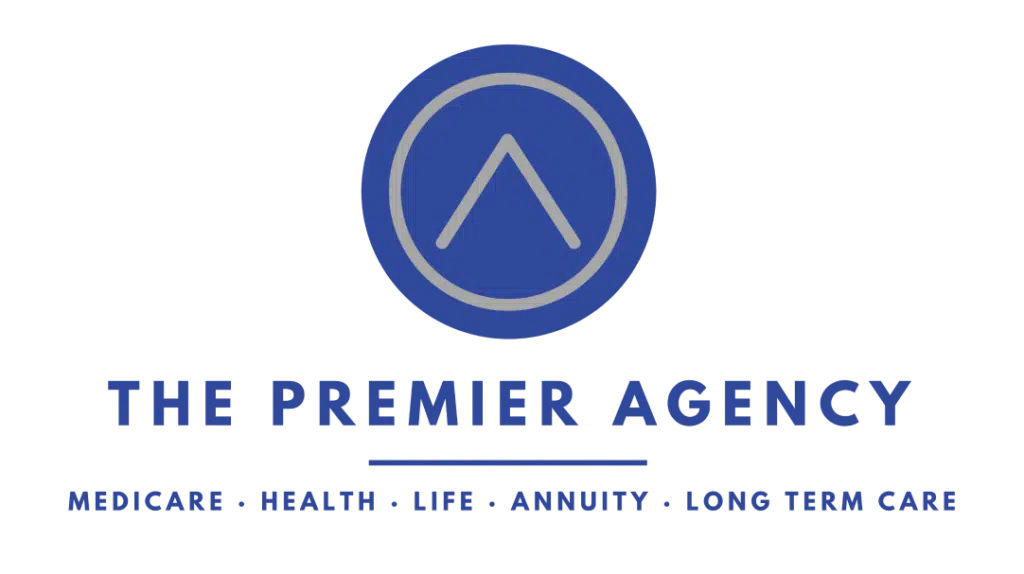Learn the essential skills needed to succeed as a health insurance agent, including communication, problem-solving, and in-depth industry knowledge.Health insurance agents play a crucial role in helping people secure the right coverage for their needs. According to the Bureau of Labor Statistics, employment in this field is projected to grow 5% from 2020 to 2030. This article explores the essential skills health insurance agents need to thrive in this dynamic industry. We’ll cover effective communication techniques, sales strategies, and the importance of continuous learning and certification. By mastering these skills, agents can provide better service to clients and advance their careers in this rewarding field.
Key Takeaways
- Health insurance agents need strong communication, sales, and negotiation skills to succeed in their field
- Continuous professional development is crucial for agents to stay competitive and informed about industry changes
- Agents must prioritize customer service, including personalized support and professional complaint handling
- Leveraging technology, such as CRM software and digital communication channels, enhances agent efficiency and client service
- Ethical practices and legal compliance are essential for maintaining integrity in the health insurance profession
Understanding the Role of a Health Insurance Agent

Health insurance agents play a vital role in the workforce, managing customer relationships and navigating complex policies. This section explores their core responsibilities, the importance of integrity in adhering to legal and ethical standards, and how they use negotiation skills to match health policies with client needs. Understanding these aspects is crucial for agents to excel in the field.
Core Responsibilities in the Health Insurance Industry
Health insurance agents have a range of core responsibilities in the industry. They must possess a high school diploma and demonstrate leadership skills to effectively guide clients through complex policy options. Their job description includes evaluating client needs, explaining coverage details, and recommending suitable plans. As experts in their field, agents stay updated on industry changes and regulations to provide accurate advice and ensure compliance.
Navigating Legal and Ethical Standards
Health insurance agents must navigate legal and ethical standards to maintain professional integrity. They use critical thinking skills to ensure compliance with regulations while providing excellent customer service. Agents engage in ethical sales practices, balancing the need to meet targets with the responsibility to offer appropriate coverage. Underwriting knowledge helps them understand policy terms and explain them clearly to clients, fostering trust and transparency in their interactions.
| Key Aspects | Skills Required |
|---|---|
| Legal Compliance | Critical Thinking |
| Ethical Sales | Customer Service |
| Policy Explanation | Underwriting Knowledge |
The Impact of Health Policies on Client Needs
Health insurance agents must understand how policies impact client needs in the ever-changing healthcare landscape. Through comprehensive training, agents develop risk management skills to effectively assess and address client requirements. Agents gather and analyze information to match clients with suitable policies, ensuring optimal coverage and financial protection.
Mastering Effective Communication Techniques

Insurance agents must master effective communication techniques to thrive in their field. This skill enables them to understand client concerns, explain complex insurance policies, and adapt to diverse clients. By honing these abilities, agents can innovate their approach, ensuring clear and effective client interactions across various situations.
Listening Actively to Understand Client Concerns
Health insurance agents must actively listen to understand client concerns, especially when discussing complex topics like the Affordable Care Act or mental health coverage. By focusing on the client’s needs and avoiding industry jargon, agents can build trust and provide tailored solutions. This skill helps agents navigate the United States healthcare system effectively, ensuring they meet client needs while complying with industry standards during audits.
Explaining Complex Plans in Simple Terms
Health insurance agents and brokers must develop strategies to explain complex plans in simple terms. They break down intricate health care concepts into easily digestible information, ensuring clients understand their coverage options. By using clear language and relatable examples, agents help organizations and individuals navigate the complexities of the health insurance landscape effectively.
Adapting Communication Styles for Diverse Clients
Health insurance agents must adapt their communication styles to effectively engage diverse clients when discussing insurance plans. This skill proves crucial for agents to build their business and achieve their goals. By tailoring their approach to each client’s unique background and preferences, agents can better explain complex insurance concepts, obtain valuable feedback, and ensure clients understand their options. Agents with a license demonstrate proficiency in adjusting their communication methods, enhancing their ability to serve a wide range of clients effectively.
Building Strong Sales and Negotiation Skills

Health insurance agents need strong sales and negotiation skills to succeed. These skills help agents identify potential markets, present insurance solutions persuasively, overcome objections, and close deals beneficially. Effective sales techniques can increase an agent’s income and improve client satisfaction. Understanding software tools and working with primary care physicians enhances an agent’s ability to serve clients effectively.
Identifying Potential Markets and Client Segments
Health insurance agents must identify potential markets and client segments to succeed. They use databases and research to analyze demographics, economic trends, and healthcare needs. Agents also consider regulations set by the Financial Industry Regulatory Authority when targeting specific groups. Effective advertising strategies help reach potential clients, while knowledge of casualty insurance broadens their service offerings. Agents who master these skills can expand their client base and increase their success in the competitive health insurance market:
| Market Identification Tools | Client Segment Factors |
|---|---|
| Databases | Demographics |
| Research | Economic Trends |
| Advertising | Healthcare Needs |
Presenting Insurance Solutions Persuasively
Health insurance agents must develop a persuasive marketing strategy to present insurance solutions effectively. Agents with an associate degree often have an advantage in understanding complex policies and explaining them clearly. Building a strong reputation for efficiency and trustworthiness helps agents succeed in selling both health and life insurance products. By focusing on client needs and demonstrating how specific policies address those needs, agents can increase their success rate in closing sales.
Overcoming Objections With Confidence
Health insurance agents must develop confidence in overcoming objections to succeed in insurance sales. By understanding common client concerns about finance and value, agents can prepare effective responses. Using computer systems to access up-to-date information allows agents to address objections with accurate data. This skill helps insurance sales agents build trust and close deals more effectively.
Closing Deals With Mutual Benefit in Mind
Health insurance agents must focus on closing deals with mutual benefit in mind to ensure long-term success. Effective management of client relationships and teamwork within the company are crucial for insurance brokers to achieve this goal. By understanding the specific needs of businesses seeking health insurance, agents can tailor their approach to provide optimal solutions. This strategy not only benefits the client but also strengthens the agent’s position in the competitive insurance market. Key steps in closing mutually beneficial deals include:
- Thoroughly assessing client needs
- Presenting customized insurance solutions
- Addressing concerns and objections openly
- Highlighting the value proposition for both parties
- Ensuring clear communication throughout the process
Enhancing Customer Service Expertise

Health insurance agents must excel in customer service to thrive in their field. This section explores how agents provide personalized support, manage follow-ups, handle complaints professionally, and exceed client expectations. These skills are crucial for agents working with Medicare in Arizona, boosting their confidence and improving client retention through positive behavior and service.
Providing Personalized Support to Clients
Health insurance agents use inductive reasoning and technology to provide personalized support to clients. They analyze data to understand individual needs and preferences, tailoring their approach accordingly. By leveraging digital marketing tools, agents can deliver targeted information and recommendations, enhancing the client experience and building lasting relationships.
Managing Follow-Ups and Relationship Building
Health insurance agents must excel at managing follow-ups and building relationships to succeed in their field. They use active listening skills to understand client needs, particularly when discussing employee benefits and dental insurance. Agents pay close attention to details, ensuring timely follow-ups and personalized communication. This approach helps build trust and loyalty, leading to long-term client relationships. Effective follow-up strategies include:
- Scheduling regular check-ins
- Providing updates on policy changes
- Offering personalized recommendations
- Addressing concerns promptly
- Sending relevant information and resources
Handling Complaints With Professionalism
Health insurance agents must handle customer complaints professionally to maintain trust and loyalty. They use clear language to address concerns about property insurance or primary care coverage. Insurance sales agents listen actively, empathize with clients, and work towards resolving issues promptly. This approach helps maintain positive relationships and can turn dissatisfied customers into loyal clients. Key steps in handling complaints include:
- Listening attentively to the customer’s concerns
- Acknowledging the issue and apologizing if necessary
- Asking clarifying questions to understand the problem fully
- Providing clear explanations and potential solutions
- Following up to ensure the issue is resolved satisfactorily
Exceeding Client Expectations for Retention
Health insurance agents can exceed client expectations and improve retention by expanding their knowledge of the market and employing effective problem-solving skills. Agents who consistently deliver exceptional service often see an increase in their salary and employment opportunities. Agents can differentiate themselves in a competitive market by anticipating client needs, providing proactive solutions, and staying informed about industry trends. Key strategies for exceeding expectations include:
- Offering personalized policy recommendations
- Providing timely updates on industry changes
- Conducting regular policy reviews
- Offering value-added services beyond basic coverage
- Responding promptly to inquiries and concerns
Leveraging Technology in Daily Operations

Health insurance agents must leverage technology to thrive in today’s digital landscape. This section explores how agents use CRM software for client management, embrace digital communication channels, stay updated with online tools and resources, and protect client information securely. By mastering these skills, agents can improve their efficiency, enhance client service, and adapt to the evolving insurance industry.
Utilizing CRM Software for Client Management
Health insurance agents use CRM software to manage client relationships effectively. These tools help agents track policy details, assess risk, and handle disability claims efficiently. CRM systems also aid in managing legal liability issues and streamline communication with clients. By leveraging these technologies, agents can enhance their soft skills, providing personalized service and timely support. The following table illustrates the key benefits of CRM software for health insurance agents:
| CRM Feature | Benefit for Agents |
|---|---|
| Client Database | Organized storage of policy information |
| Task Management | Improved follow-up and client service |
| Analytics | Better risk assessment and policy recommendations |
Embracing Digital Communication Channels
Health insurance agents with a diploma and experience in insurance sales should utilize digital communication channels to establish connections with clients. These channels, including email, video conferencing, and social media, enable agents to efficiently engage with clients and deliver timely information. The Occupational Information Network acknowledges the significance of digital communication skills in the insurance industry, highlighting their role in improving client relationships and optimizing service delivery.
Keeping Abreast With Online Tools and Resources
Health insurance agents must stay current with online tools and resources to excel in their profession. By regularly accessing industry-specific platforms, agents can enhance their knowledge of insurance products, regulations, and market trends. This adherence to continuous learning helps agents provide better service to clients and maintain their competitive edge in the insurance industry.
Protecting Client Information Securely
Health insurance agents must prioritize protecting client information securely to maintain regulatory compliance and ensure customer satisfaction. Agents should implement robust data encryption methods, use secure cloud storage systems, and regularly update their health administration software to safeguard sensitive client data. By following industry best practices for data protection, agents can build trust with their clients and minimize the risk of data breaches, which is crucial in the highly regulated healthcare sector.
Committing to Continuous Professional Development

Health insurance agents must commit to continuous professional development to stay competitive. This involves keeping up with industry changes, participating in training programs, networking with peers, and setting personal growth goals. These practices help agents enhance their skills, expand their knowledge, and adapt to evolving market demands.
Staying Updated With Industry Changes and Trends
Health insurance agents must stay updated with industry changes and trends to maintain their competitive edge. They can achieve this by regularly reading industry publications, attending webinars, and participating in professional associations. By staying informed about new regulations, policy changes, and market developments, agents can provide accurate advice to clients and adapt their strategies to meet evolving needs.
Participating in Training and Certification Programs
Health insurance agents participate in training and certification programs to enhance their skills and stay competitive. These programs cover topics such as new insurance products, regulatory changes, and customer service techniques. By completing certifications, agents demonstrate their expertise and commitment to professional growth, which can lead to increased trust from clients and better career opportunities.
| Training Type | Benefits |
|---|---|
| Product Knowledge | Better client recommendations |
| Regulatory Compliance | Reduced legal risks |
| Customer Service | Improved client satisfaction |
Networking With Industry Professionals
Health insurance agents benefit from networking with industry professionals to expand their knowledge and opportunities. They attend conferences, join professional associations, and participate in online forums to connect with peers and experts. Through these interactions, agents gain insights into best practices, industry trends, and potential career advancements, enhancing their ability to serve clients effectively.
Setting and Achieving Personal Growth Goals
Health insurance agents should set and achieve personal growth goals to advance their careers. They can create specific, measurable objectives for expanding their product knowledge, improving client relationships, or increasing sales. By regularly reviewing and adjusting these goals, agents can track their progress and stay motivated in their professional development.
Conclusion
Health insurance agents must master a diverse set of skills to excel in their field. Effective communication, strong sales and negotiation abilities, exceptional customer service, and proficiency in leveraging technology are crucial for success. Agents who commit to continuous professional development, stay updated with industry changes and build strong networks position themselves for long-term success. By honing these essential skills, health insurance agents can navigate complex policies, meet client needs effectively, and thrive in this dynamic industry.




